Nostalgia - How I Used To Discover Music In The 80s
A description of how I used to aquire music and knowledge, back in the dark days before the internet
I'm not trying to claim that the old ways were somehow "better"
After all, even I for the most part don't discover music this way anymore, so the purpose of this post is not to suggest that we should go back to the old ways, but rather to indulge in a bit of nostalgia with a hope that it might offer clues to better use of the new tools we have, or at least help us appreciate those tools more. Also, I realize that some of my younger readers may be unfamiliar with some of these methods, and might find them interesting.
Indie Production & Distribution Then vs. Now
Compared to the early '80s, today an indie artist has a much easier time recording their work (and having that recording actually represent their ideas.) Recording music and putting it out, even on cassette was an expensive and time consuming undertaking. Now most indie music is produced in home studios, usually on computers. That means that the main tool needed to get started is probably already in the budding musician's home. I had to buy a 4-Track cassette recorder and learn how to bounce tracks.
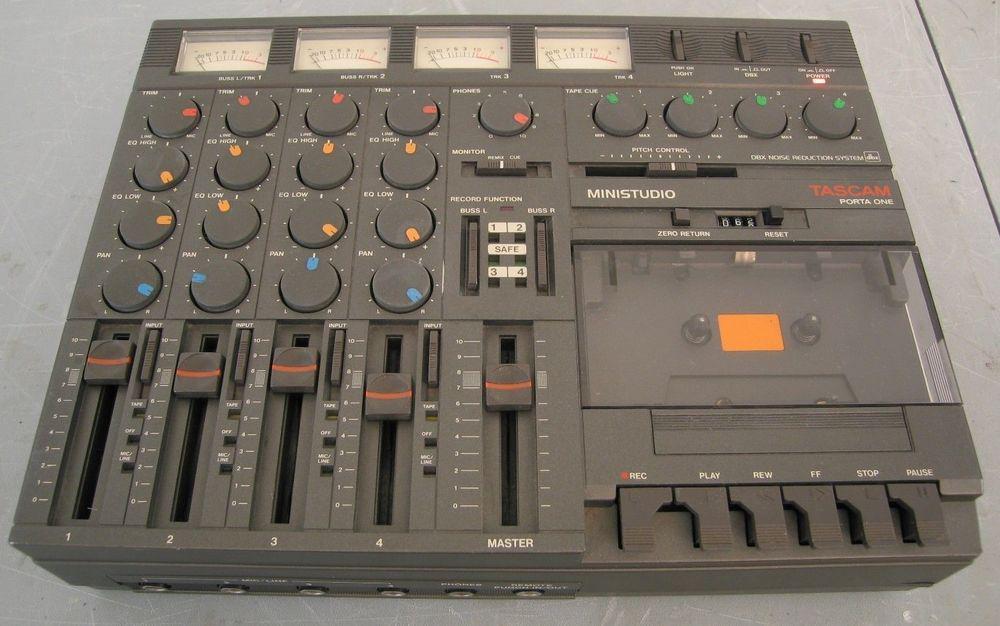
These days, artists also have a much easier time distributing their work all over the world. In those days, a record was expensive and complicated to produce and usually the idea was to break even on a punk record, after finding some sort of distribution other than selling them out of the back of the band's van after shows.
My point is that from the consumer's point of view, finding out about the music in the first place was the hardest part of being an underground music fan. Currently the biggest obstacle is to sort through all the available music for something good, which is a different sort of problem entirely.
Sources that I used, mostly in order of importance to a young punk interested in underground music:
Word Of Mouth
I talked to my friends about music a lot. In person, on the phone, in letters. Music was probably our main topic of conversation, and in many ways our "currency" of cool. The coolest kids I knew always seemed to know more than I did about a seemingly endless string of obscure bands, usually because they had older, hipper siblings who already had the inside info and were willing to pass it along.
With no older sibling, sometimes I had to get creative. I have a vivid memory of visiting a friend, spotting a copy of "The Dominatrix Sleeps Tonight" belonging to his older sister, and then being on a mission to get a copy just based on the cover and the fact that his sister was very hip and was way ahead of us, so I was sure it was a lead.
It turned out to be a very good record, which I still have:
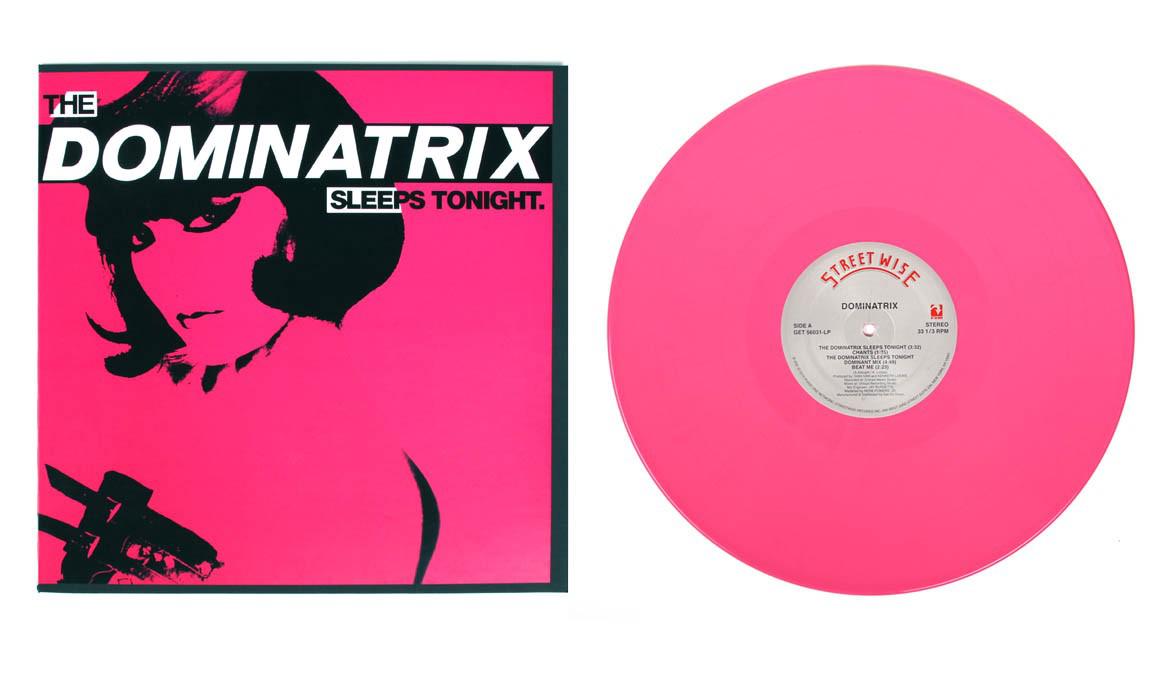
Even better than talking about music, was hanging out and listening to music with someone who was willing to share their discoveries. There is something appealing about discovering new music with someone who is enthusiastic about it and has decided that you should also listen to it. Sadly, I haven't found a way to do this very well with internet chat (yes, I know there are some tools to watch certain streaming services together, but I want to be able to play content from my library.) In some ways that's what I am trying to do with this blog.
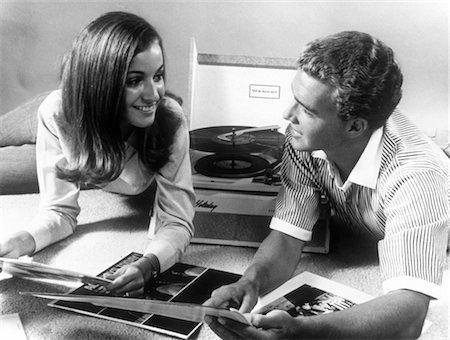
Mixed tapes from friends (actual cassettes)
It was a tough call which to list first, as mixed tapes were central to my universe at 15 years old. I firmly believe that the tapes I made and received formed the foundation of why I became the type of DJ that I did, and of course had a big part in my having the chutzpah to get up in front of people and inflict my musical tastes on them.
With some of my friends, exchanging the odd tape every now and then kept us abreast of what the other was listening to, with other friends it practically got competitive to see who could make the best mixes, with transitions between songs that were nothing alike, yet somehow worked together. It was no accident that I became a DJ specializing in esoteric beats, after spending my teen years making those sort of tapes.
As a teenager, my main way to consume music was through my Walkman, which because I was a skateboarder was semi-regularly destroyed and replaced until I got one of these bad boys:
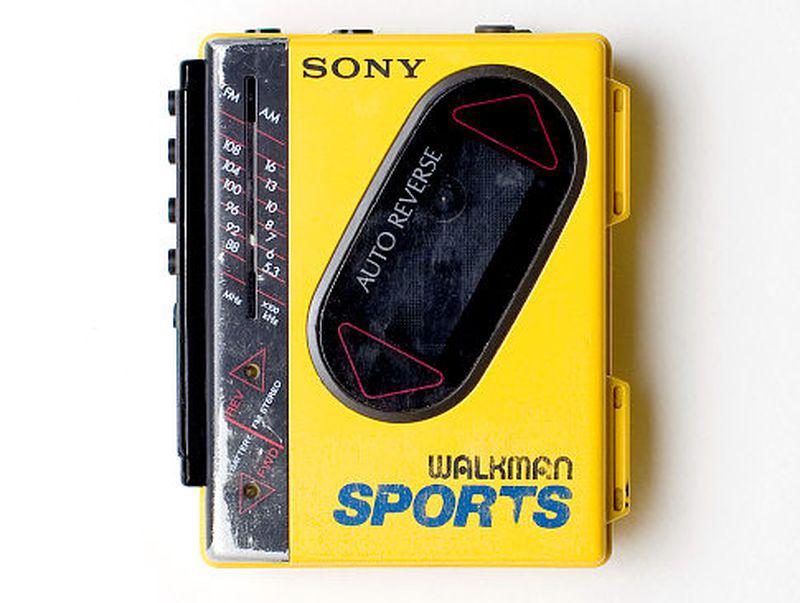
Listening to music at home was desirable from an audio fidelity point of view, but the life of a teenage skater punk in NYC in the '80s was far too mobile to rely on that, and the mixed tapes and tape copies of my records, along with the occasional ROIR cassette provided the soundtrack to that life. The variety of music in those mixed tapes was usually more appealing and often won out when choosing the sountrack of the moment.
Radio
Radio used to be a lot more important (to me at least) and I feel that it used to also be a lot more interesting. I know that there are still a few indie stations left, radio over the internet and satellite radio exist, and that the global audience helps a bit, but the truth is that we, overall, do not consume music the same way, and radio doesn't play the same role that it once did in shaping our musical tastes.
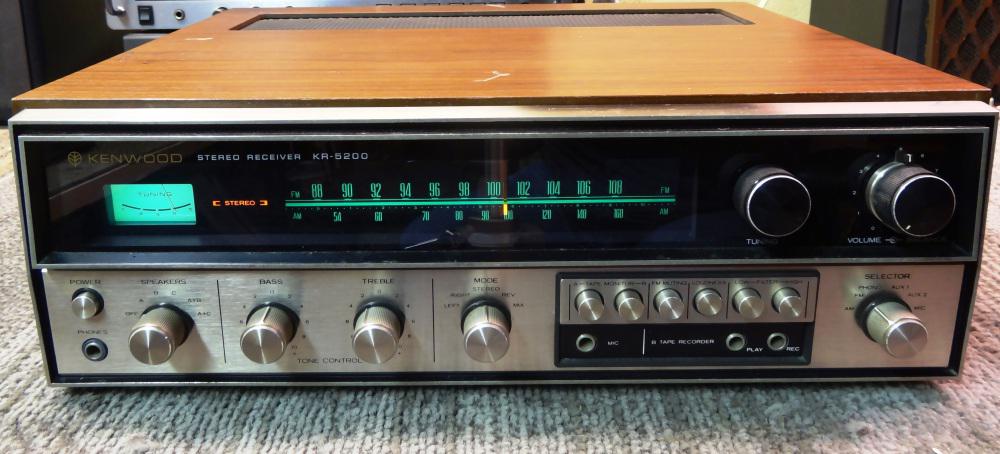
I was lucky enough to grow up in NYC, with at the time both good commercial radio, and some of the best indie radio available with WFMU, WBAI, and WKCR all broadcasting a wide variety of programming. I learned pretty early on (11 years old I think) that I could tape late night radio shows and listen to them later. That led to me being pretty aware of Hip Hop and other more underground music at a young age.
Record Stores
Cool underground record stores like Rat Cage Records, Rocks In Your Head, Bleeker Bob's, and my favorite of them all, Lunch For Your Ears were regular stops for me, although purchases were not as frequent as the owners and employees would have liked. Don't get me wrong, I bought a lot of records, but compared to 10-15 years later when I was a working DJ? Not even close!
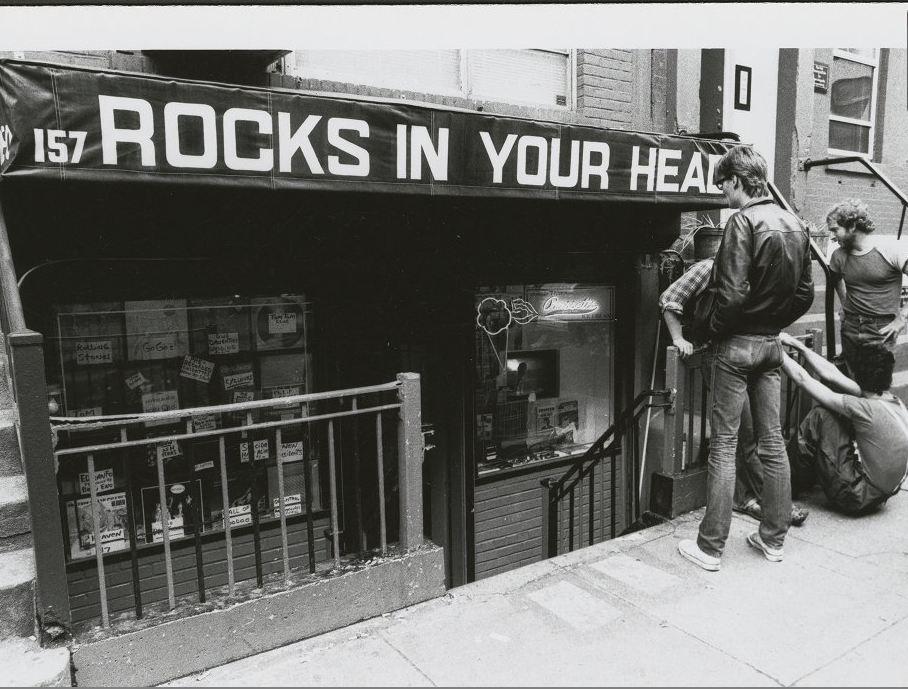
I would talk to the employees and other customers, listen to what they played in the store (sometimes one could ask to hear something) and of course looked through endless crates of records. The flyers in the stores were the best way to know what shows were coming up, and wherever there were flyers one could also find Zines.
Zines AKA Fanzines
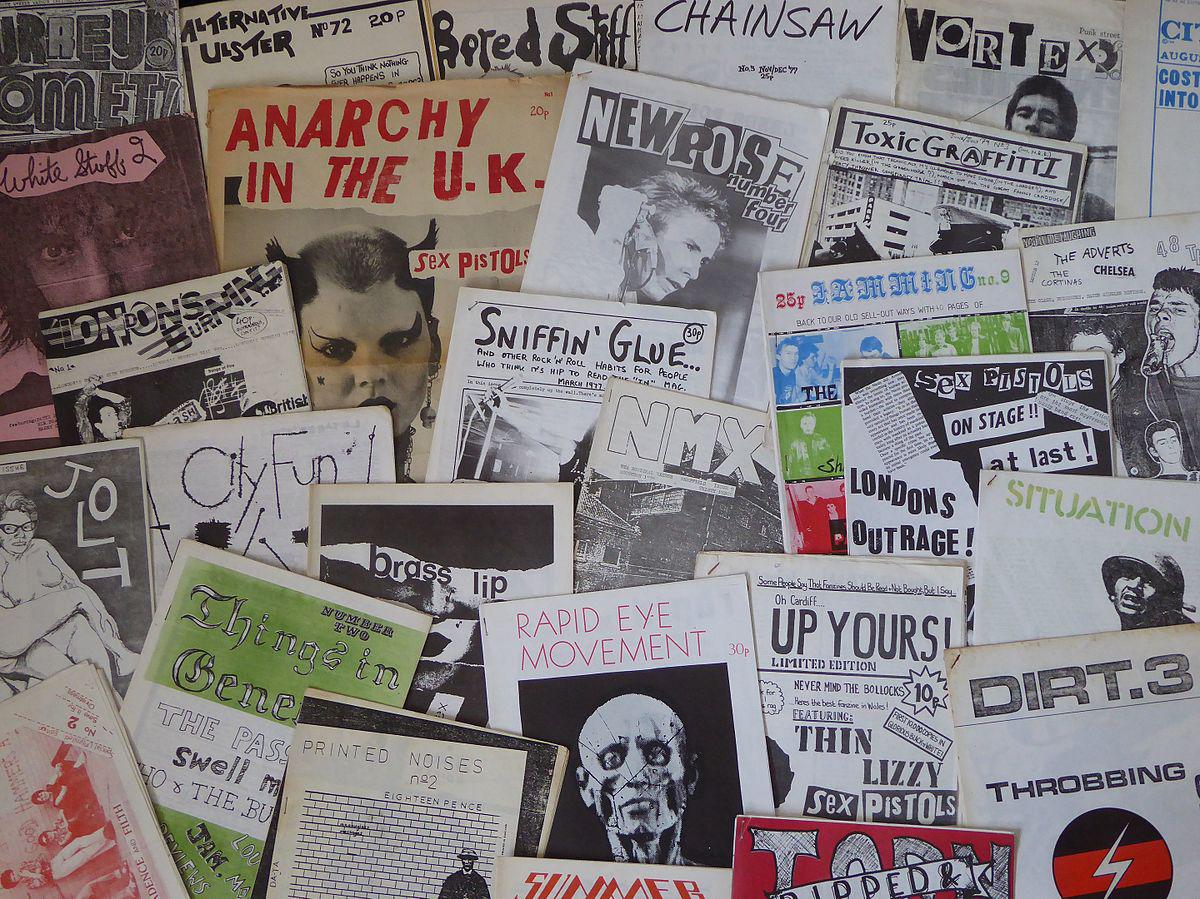
Fanzines were self published magazines, quite often xeroxed and stapled together. The writing was often crude, and the editing non-existent, but they were as cutting edge as one could get at the time, and they were covering a scene that wasn't getting any attention in the legitimate music press. More than anything, Zines were an example of the DIY punk aesthetic, and as low as the bar was for starting a punk band, putiing out a Zine had an even lower one.
I didn't really personally rely on Zines for music discovery very much, but plenty of people did. I found the most popular ones, based on the west coast, had little good info about the local NYC scene.
Shows
Before I became the kind of jaded asshole who tries to arrive just after the opening acts are finished, I went to shows as a way to see new bands. It wasn't completely out of interest in hearing new bands however, because as a teenager I was lucky to even have a music event I could get in to in the first place so I took in almost any live punk music I could get.
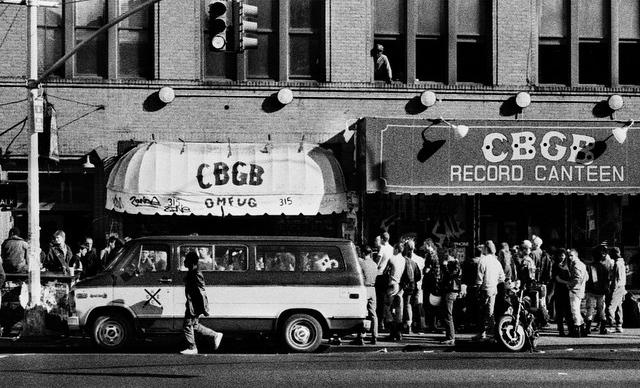
Other all-ages shows were rare so the weekly Sunday matinee show at CBGB was something we would tend to go to no matter who was playing, sometimes just loitering outside to the annoyance of many. These weekly shows were the first time that I experienced a "scene". where mostly the same people would show up to hang out in the same place, and it was here that I learned just how important attendance was if one wanted to stay up to date on the latest bands, songs and drama.
The Library
Before the internet, the library was the key to all sorts of research, and I was lucky enough to have access to some really amazing libraries at that point in my life. Obviously, I had the famed New York Public Library at my disposal, with many branches and a truly massive collection, but I also had access to an impressive library in my high school (really) as well as another private library through my parents. Despite being a punk I was a huge library nerd.

Without the internet I had to use the library (and yes, the card catalog) to do my research for both academic and personal pursuits. Books are a fantastic way to research music, but not so much for the cutting edge stuff. Luckily the libraries also stocked periodicals and those contents were also indexed in the card catalog.
Punk got more coverage in foreign magazines, and I was already interested in learning about a wide variety of music, so the libraries played their part in my music education. One of the things I liked to do was to look up magazine interviews of artists that I liked. Invariably they would be asked about what music influenced them. I would check out those artists who, usually I would also like, and then research who their influences were.
Come to think of it, I spent a lot of time at the library in those days. Now I never go.
Takeaways
While some of these methods have fallen out of use, possibly replaced by new ones, some are still going strong. Social bonding over music must still happen, and in some ways the Spotify playlist has replaced the mixed tape, while Google has replaced the library as the primary research source. Radio is fading, but people live-stream on Twitch and other platforms as a way to share their musical tastes. Of course these are not 1:1 replacements, but tend to serve somewhat the same purpose to the new generation of music freaks.
This old guy still tries to learn something about music every day, although my interests are generally in finding old music that I managed to miss in my past digging, as opposed to chasing the new hotness. Spending 15 years as a DJ chasing the tunes that haven't been released yet sort of killed that drive in me. I still want to hear new music, but I have had trouble finding new artists that I like.
Maybe I need to talk to some of my friends about music more.
